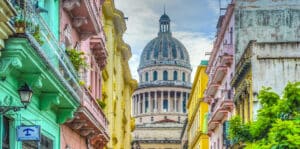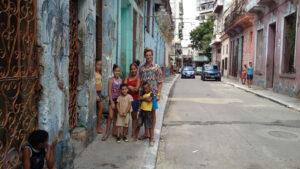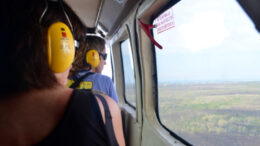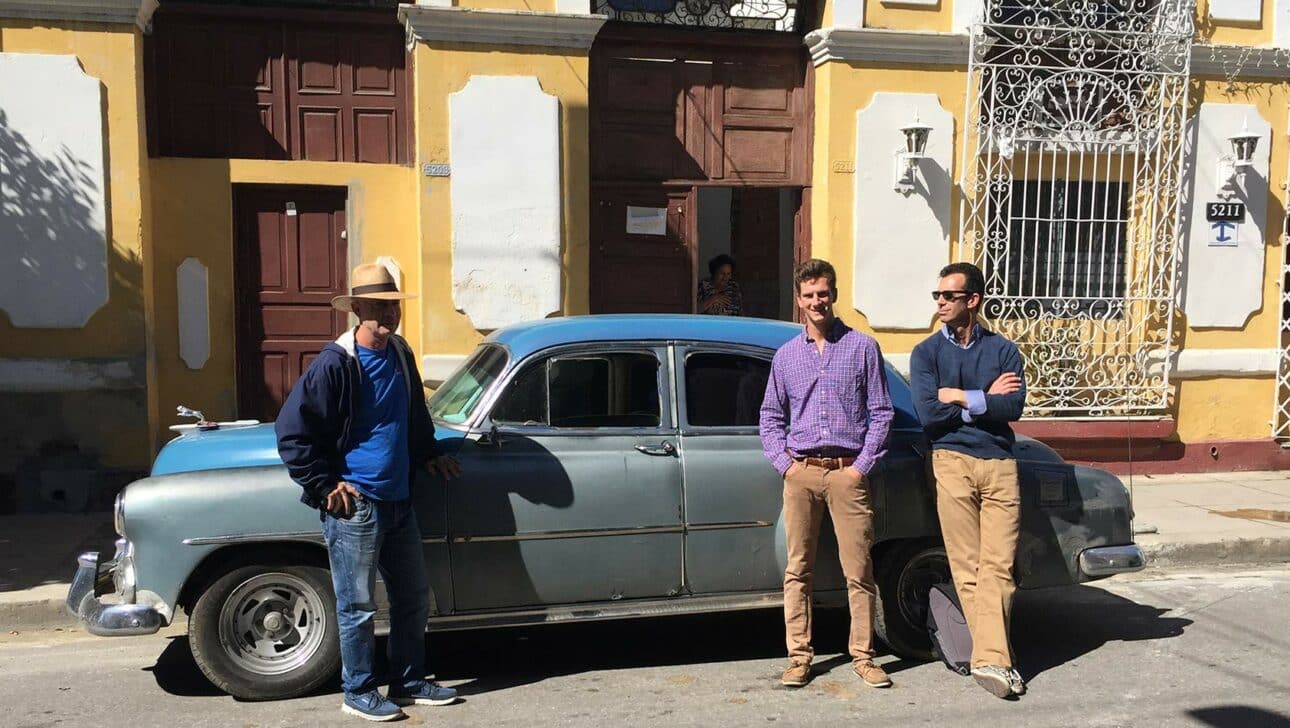In a million years, I couldn’t have predicted how much Cuba would mean to me. When we began the long slog to become one of the earliest companies to get U.S. government approval for travel to Cuba, I didn’t have a personal connection. My closest brush with the island came from the stories my in-laws told about their visits decades before I ever met them. It was a surprise to me that my connections with Cuba would turn into an all-out mission to help Americans see Cuba at this inflection point in history.
What I now think of as The Amigos Effect—the benefits of deep, sustained and unselfish friendships with the Cuban people—we’re able to make Cuba more affordable even though we have hands down the best guides, best hotels and best interpersonal experiences of any company that you may consider for your visit.

Gaining access to Cuba started for me as a business proposition. My company, Classic Journeys, is built around the thrill of immersive cultural travel. Being part of the movement to open up Cuba and explore life there was a natural fit. Wherever we go on Classic Journeys, we’re all about meeting the local people, and the stated objective of the U.S. government was to establish people-to-people connections between Americans and Cubans. It was a match made in heaven.
It was also obvious from the get-go that we needed feet on the ground if we were going to succeed. Though the country now permits some private enterprise, government Bureaucracy with a Capital B is impossible to avoid. Phone calls get through better now than they used to. Emails have always been a little hit or miss. Face time (the kind with actual people in the same room) has been our operative mode from the start. Bureaucrats are people too. Their jobs are to toe the line, but they are not immune to people who find judicious ways to make their work easier. We’ve always sought to do that. The biggest bonus was that our measured approach to officialdom put us in connection with the everyday people of Cuba. At first, overwhelmed by demand, the authorities directed visitors to the limited organizations and places that could handle the traffic. In a typical scene, a stoic director of such-and-such a community project stood beside a translator who dutifully relayed the party line on tobacco production, education policy, or whatever topic was at-hand. We’re told that plenty of that still happens, but we’ve moved on!

On our repeated visits we kept scratching at the surface. The directors warmed up. They introduced us to the tobacco farmers who gave us their own versions of the quota system. We focused on becoming a regular, respectful and responsive presence in their lives. The teacher in a rural school realized we didn’t want to be just spectators in her third-grade classroom, but that we wanted to hang out for a while with her and her students. Most importantly, our local Cuban guides—truly some of the most exceptional pros you will ever meet—saw that Classic Journeys and our guests were consistently sincere in our desire to really understand their lives. That’s opened doors that I never even dreamed of on my first few trips. These days, our amigos are free with their time and enthusiasm. There’s nothing mechanical about how our favorite salsa teachers use their eyes and their smiles to get you moving. (My own hips remain resistant to the beat, but that doesn’t stop them from trying!) When we open the door to the workshop where our friends Julio and Nidialys operate Cuba’s premier classic car-restoration business, the reception always blows us away. You instantly realize that they couldn’t be happier to see us all. It’s a your-friends-are-my-friends moment, a greeting that is completely unlike the professional greetings you’ve probably received at plenty of touristic spots.
Beyond the intimate entrée we get into Cuban life, our friendships have yielded some terrific advantages that are crucial to the value you get from traveling with Classic Journeys. For instance, we’re regular customers at some of the country’s best paladars. These privately owned restaurants are probably the greatest free-enterprise success story in these parts. As regulars, we’re never shut out, and you might notice that we’re seated at some of the best tables.
You may have read about the scarcity of top-level accommodations in Cuba. The stories are true. Many properties are, to put it gently, rudimentary. Demand for the best of the best is stratospheric. Fortunately, we’ve been staying at many of those preferred hotels for years now. A Classic Journeys trademark (and this is true all over the world, not just in Cuba) is our fair, above-board relationships with hoteliers. Behind the scenes, we put a tremendous amount of energy into respectful business practices that aren’t always the norm. While other companies struggle to find adequate space, we can confirm access to great accommodations.
And all of this is why I keep going back to Cuba. First, because the friendships that have blossomed there are so satisfying and the new ones are a constant delight. To walk into Mailin’s paladar in Trinidad and see her face light up in recognition before she smothers me with a hug is a gift beyond words. But, as I said at the start, the other terrific benefit is that these friendships allow us to fulfill a mission that we hold near and dear. We can show you the Cuba we love at an extremely important moment in history…we can do it in style…and we can offer you exceptional value at reasonable cost.
After you compare your options, I hope you will allow Classic Journeys to show you the Cuba we know and love. Because that’s what amigos are for.





